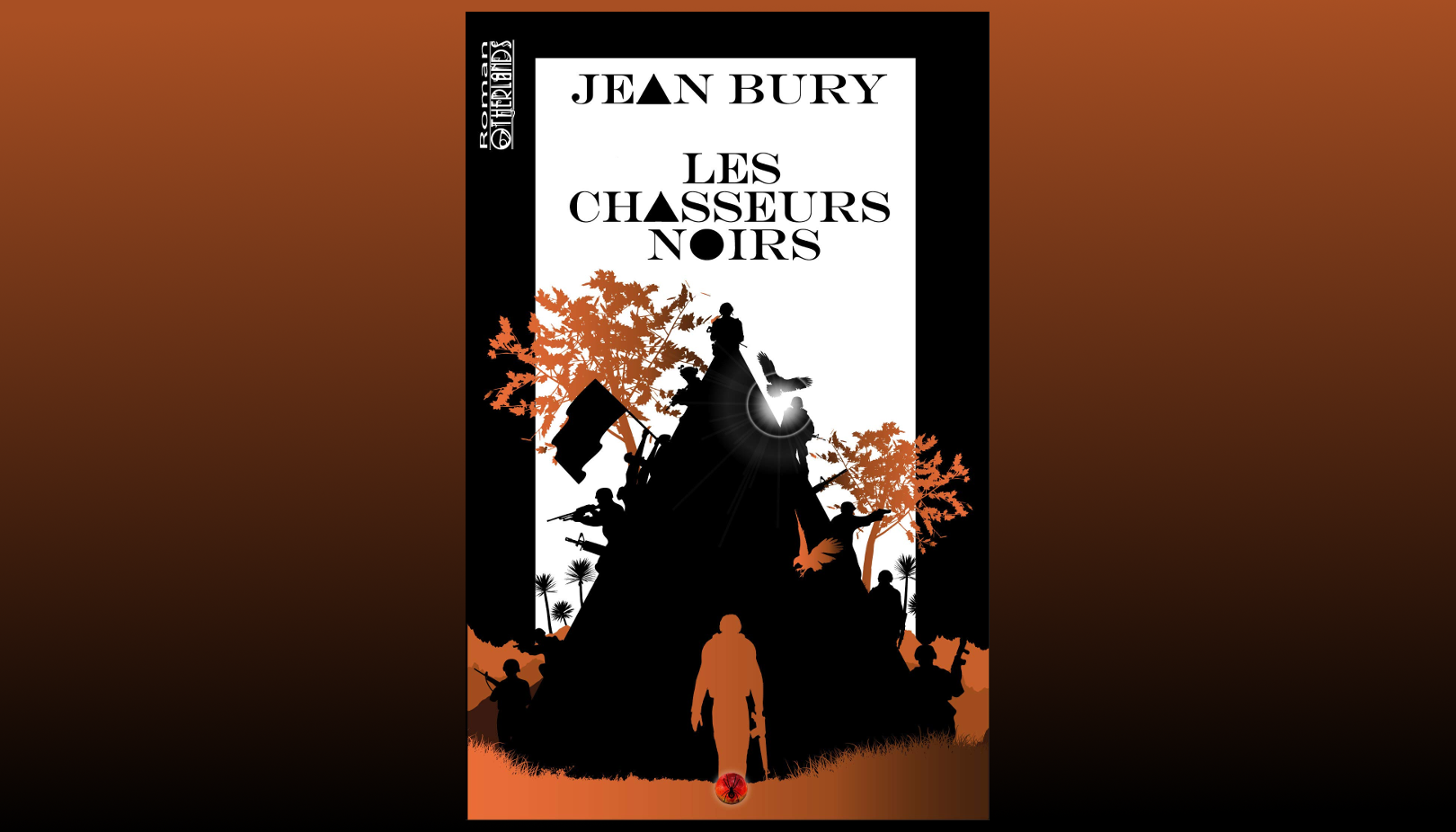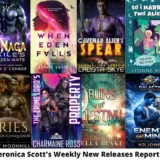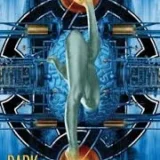
OBIR: Occasional Biased and Ignorant Reviews reflecting this reader’s opinion.

ON SPEC MAGAZINE issue #116, Vol. 31 No. 2.
Publisher: The Copper Pig Writer’s Society. Managing Editor and Art Director: Diane L. Walton.
Issue Designer: Jerry LePage. Poetry Editors: Barry Hammond, and Charlie Crittenden.
Fiction Editors: Barb Galler-Smith, Virginia O’Dine, Madison Pilling, Constantine Kaoukakis, Ann Marston, Laurie Penner, A.J. Wells, Diane L. Walton, Dan Gyoba, Greg Mitchell, Ethan Zou, Alyssa kulchinsky, and Barb Geiger.
Cover Art: Majestix – by James Beveridge
Editorial: Writers, Be Kind to Yourself – by Diane L. Walton
Review:
Dianne praises Robert Runté’s writing advice as revealed in his interview, and quotes some observations from blogs by Author Chuck Wendig. In essence, the title says it all. Writers tend to be too harsh in their expectations. Don’t be. To which I add, don’t beat up on yourself. Leave that to your critics. No need to do their work for them.
FICTION:
The Opportunity Costs of Adventure – by Julia August
Premise:
Is there such a thing as being too academic?
Review:
You betcha. Subtitled Unsent Emails From Stephen Greenwood’s Drafts Folder, the story, scattered among the other stories as individual emails, details the exceedingly esoteric research of an expert on obscure subjects like “Semiotics and Stigmatology” on his quest to justify his secure position with tenure. The language of the emails is ornately formal, typical of the pomposity cloak which academics often employ to convert plain meaning into a hidden language known only to initiates (lawyers do the same), which is funny enough in itself. Additional humour comes from casual references to the extraordinary consequences of the research should it be mishandled or mistakes made. A not uncommon conundrum in modern research. To put it another way, that fuddy-duddy professor you’ve been ignoring could well hold the fate of the world in his research notes, and he’s so wrapped up in his quest for the perfect footnote he doesn’t actually care. He has more important things to worry about, like impressing his peers.
As someone who lived the life of academia for four years long, long ago, I greatly enjoyed the subtle and original touches of humour in this story. A dry, wryly amusing parody I very much appreciate. Great fun.
No Such Thing as Magic – by Amelia Dee Mueller
Premise:
The villagers fear what young Esther may grow into.
Review:
Like her mother, Esther is blessed/cursed with inborn talents pertaining, not to magic which doesn’t exist, but to the natural powers of nature which all decent folk fear. To be shunned as dark and evil when she revels in the light is a great burden. Life often seems unfair to an adolescent girl. Esther has more reason than most to complain. How to resolve her plight?
I was struck by one highly original detail in particular. Esther communicates easily with the trees of the forest, but they can tell her nothing about the creatures of the dark, for the forest sleeps soundly at night in order to avoid them. Even the forest is afraid of the haunters of the dark. Perhaps the villagers are right to be fearful of Esther’s potential. Perhaps she should be, too.
This story is all about the choices surrounding teenage angst as magnified by powers beyond the imagining of even the most romantic of modern youths. Fascinating.
When the Mine Sang – by Jakob Drud
Premise:
Most mines are dangerous. This one more than most, for the sought-after ore is hungry.
Review:
At the bottom of the deepest shaft only young boys are small and agile enough to explore the drill shafts. Michael is one of the best at this work. He’d be proud, were it not for the pittance he’s barely paid and the imperial solders enforcing productivity. Yet, once he enters a drill shaft, all petty annoyances are rendered remote, and he has the privilege of dealing with his fears alone. Quite a blessing, actually. Others would just get in the way.
Being somewhat claustrophobic, much about this tale sets my teeth on edge. But it’s not just the physicality which terrifies. The ore is rather evil in itself, but there is nothing simple about its motivation, there is justification behind its struggle against humanity. It’s a battle for survival, and the losing side is doomed. In much fiction the bad side is bad simply because it’s bad, but in this story the truly alien evil has a darn good reason to seek victory over humanity. I find this refreshing.
Properly exploited, the ore is very useful. Unfortunately, the ore has exactly the same attitude regarding the humans seeking to mine it. It occurs to me this has all sorts of implications regarding union/management negotiations over safety conditions in the mine. However, that extrapolation will have to wait for a sequel.
As it stands, this is a tense glimpse of underground horror. Makes me glad I never wanted to be a miner. I prefer the open air.
Hand-Delivered – by Robert Runté
Premise:
It’s a straightforward mission. Routine. Simple. Deliver medical supplies to a distant colony planet. Trouble is, the Pilot-Captain is prone to conspiracy theories.
Review:
In space, no-one can hear you think? Throughout the history of our civilization, it was understood commands must always be obeyed. Equally as hoary a tradition, commands are always second-guessed, especially by barracks-room lawyer types. If you are alone on a mission, with plenty of time to ponder the minor inconsistencies of your “routine” task, molehills begin to transform into mountains, and good-old fashioned common sense can utilize rationalization to fashion castles of doom-laden logic in your mind.
In the good old days Captain Bligh characters could use whips and the threat of keel hauling to enforce discipline. No so easy when the Captain and crew aboard a long-distance spacecraft are combined in a singe individual. To quote Ren and Stimpy, “Space Madness!”
Actually, it’s more of a case of Pilot-Captain Duncan inventing a Gordian Knot of complications for himself. How everything unfolds at the end of his mission is the fun climax of the story. Let’s say the point is that assumptions seldom serve a useful purpose. Best not to think. Just follow instructions. Obey. And yet, and yet, sometimes thinking does offer certain advantages. All a question of discipline, and opportunism. Every soldier his own general, so to speak.
Enjoyably old-fashioned space opera, yet psychologically astute and offering much food for thought. Come to think of it, maybe best to send robots into space. Not humans. Humans bugger things up when left alone too long. I like this story. It rings true.
The Bridge – by Daniel G. Keohane
Premise:
Can a demon make a good pet?
Review:
Donny found the critter in his sandbox and looked after it in secret for several years. Now the pair of them are on the run from the police, and from something else, something immensely spiritual. In one sense this is a straightforward metaphor for a conflict between absolute good and absolute evil. Then again, it could be considered the promise or threat of the next stage in human evolution as triggered by a force alien beyond our comprehension. Or maybe it is simply the next chapter of the ongoing story of the consequences of our expulsion from the Garden of Eden. To sum up, there’s a lot of ways to interpret this story, a lot of ways to think about it.
The ambiguity in the tale is nicely balanced, in that it’s hard to figure out which character to root for, to empathise with. Is good truly good, or evil? And vice versa? I don’t know. How do you feel about Eve eating of the tree of knowledge? Always thought that was a darn good idea, myself.
The ending is reminiscent of Arthur C. Clarke’s Childhood’s End, but with infinitely less certainty as to the worth or morality of what happens. This is definitely one of those stories where the reader has to make up their mind who and what deserves to triumph. Personally, I have yet to do so. It is an exceedingly interesting conundrum.
Tuli – by Lisa Gregoire
Premise:
What happens when the internet collapses but virtual reality and information technology remain?
Review:
This takes place later in our century when global warming has begun to bite. In the far North a woman who used to be an infamous blogger about her town’s life experiences (the locals hated her) is now the middle-aged proprietor of a virtual reality business offering cheap “trips” to far away exotic places. She is dimly aware a huge warehouse complex downtown containing servers that is receiving massive amounts of information from around the world to store for archive purposes. A young man comes into her life and convinces her the entirety of her former blogging, which she thought lost forever, is also stored at the facility. She would give anything to access it.
The internet is the modern Library of Alexandria. Is it about to burn? Already lower, early layers of information are becoming impossible to access. Ultimately it may become too complex to function and will inevitably crash. This story builds on that concept. More than that, it explores the fundamentals of existence, memory, and mortality. Are we merely what we think we are? Mere bytes of information, be they stored in our brains or in our computers? What is our ultimate fate as individuals? A complex and thought-provoking story.
Do Turtles Quest? – by Ryan Benson
Premise:
Tabitha the pond turtle has been selected by the wood nymphs to rescue the last living male chipduck from the supernatural environs of a pet shop run by a human who unfortunately understands magic. Easier said than done.
Review:
This is a delightfully offbeat fantasy fable with a little bit of philosophy thrown in. Is it better to live in the wild or be a pampered pet? Them as wants to live as long as possible want to know. And what happens when the perils of the mission are greater than anticipated? Is the essentially problem of being a magical turtle the fact that it is still, underneath its supernatural strength, just a turtle at heart? So many questions.
The solution to the quest depends on a clever use of magic to trigger something truly ordinary and prosaic. The equivalent of a famous scene in Raiders of the Lost Ark where all the skill and talent of wielding a sword turns out to be irrelevant. Sometimes the quickest, simplest solution is best. I found this story unusual and entertaining. But then, I’ve always liked turtles.
Storm Surge – by Scott Shank.
Premise:
Kaatso Kamatuum is a powerful conjurer desperate to climb Mount Tsmutsut before the monster Yasussyil can catch up to him.
Review:
Reference to fisherfolk and squid-catchers living on a storm-tossed island give me the impression of a Japanese folk tale but the names listed above appear to be made up words apart from any known language or tradition. Nothing wrong with that. They lend themselves to a fantasy ambience which feels convincingly “authentic” to the fantasy premise. A neat trick.
Though the plot is deceptively simple, a cinematic-level of description both intrigues and draws the reader into the story. I would call this dark fantasy. The mood is grim. There’s no one to empathise with. Kaatso is not at all likeable. He seems as much the villain as Yasussyil. Perhaps the peasant woman aiding Kaatso is worthy of sympathy, but the reader is kept in the dark. Her true role and status is withheld till the end of the story. One thing for sure, I was hooked; I wanted to know what was going to happen, who was going to win, and what it all meant.
Besides, a storm is always dramatic. In this case the storm is both natural and supernatural. The storm and the action suit one another. The synthesis of setting and plot make for a hypnotically compelling story worthy of being a short film with high quality CGI. Stirred my imagination it did. I quite enjoyed it.
Aristocrats of the Future (Parts 3 & 4) – By Liam Siemens
Very short prose poetry with hints of Olaf Stapledon. Grand vision but from a personal perspective. Quietly beautiful.
On the Launching of a Telescope Toward V616 Monocerotis – (Poem) By Nicholas Dolan
It helps to know the target is the blackhole nearest the Earth. I confess I am somewhat unclear about the imagery of this poem. It seems to imply the launch is an act of hubris, yet part of the rhythm of the cosmic all, so to speak. A form of life affirmation? And death affirmation? Inevitable, yet futile? Maybe.
But I’m reading the poem late at night in a race to meet a deadline, and my thoughts are very tired. The poem deserves close attention and clear thinking. Pretty certain it is an intelligent, sophisticated poem with vivid imagery. Alas, I’m too brain dead at the moment to understand clearly. At the very least I think you’ll find this poem an interesting challenge to comprehend.
NON-FICTION:
The Art of James Beveridge
Three sample black & white studies of fantasy art well demonstrating James’ crisp detail and evocative mood-casting. Impressive.
Rpbert Runté Author Interview – by Cat Mcdonald
This is a lengthy and extremely important interview. Important to me, at least. It comes as a booster shot in the arm just when I was beginning to obsess over my impostor syndrome.
Like Robert, I’ve been working on “my damn novel.” Got about 10,000 words done so far. It is so different from most published works I was beginning to get seriously scared that nobody would want to read it.
Now, thankfully, I realize I am guilty of nothing more than utilizing a typically Canadian hero. As Robert puts it “Canadian heroes are just an average nobody who was in the wrong place at the wrong time … Canadian protagonists don’t do things so much as have things happen to them … the point of view of the outsider, the bystander, the detached observer, rather than the hero.” Yep, that’s my main character precisely. If I’m going down in flames as a failed novelist, it will be as a Canadian novelist, by gum!
Interestingly, he notes that “Once self-publishing became a thing, there are a lot more Canadians who are consciously trying to emulate American models to appeal to the American mass market … the trend is for Canadian speculative fiction to be subsumed and reabsorbed into the American vision of the genre.” This, of course, makes it hard for Canadian authors to stand out. Not actually a good strategy for writers.
“A lot of the books across my desk are well-enough written, but they’re all the same book … stop trying to be Tolkien or Margaret Atwood or David Weber. We already have those folks and don’t need yet another second-rate imitation. Go write your own book. It’s your unique and original voice the genre needs.”
Exactly what I need to hear. My writing is idiosyncratic as hell, and I’m going to do it my way. Robert comments about the standard, problem-solving, alpha-male hero, saying “Screw that guy and the cliches he rode in on.” I’m going to create my own cliches!
In other words, I find the interview tremendously inspirational. It’s is crammed with pertinent and valuable advice on writing and editing. You owe it to yourself to read it.
Bots and Comics – By Lynne Taylor Fahnestalk
“Martian Sashimi” & “Ingenuity.” Good fun these, as always.
CONCLUSION:
Another splendid issue offering incredible variety.
Check it out at: < On Spec #116 >









